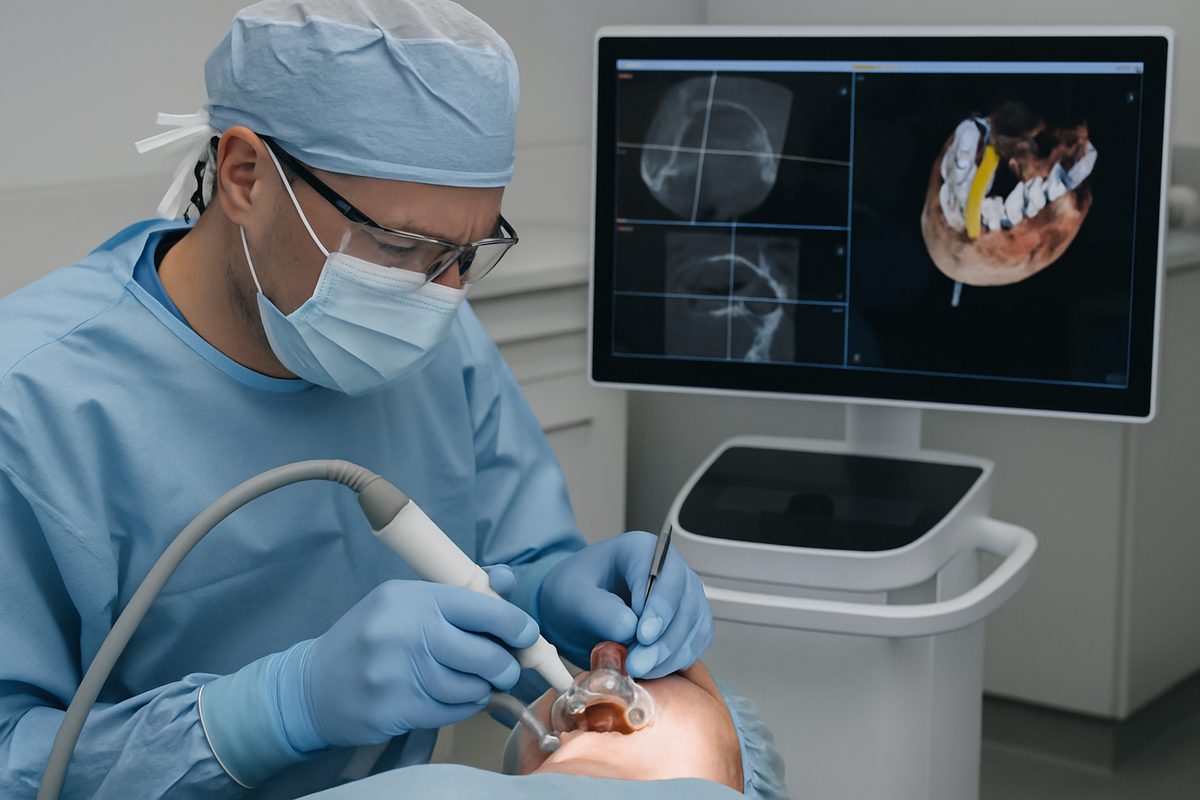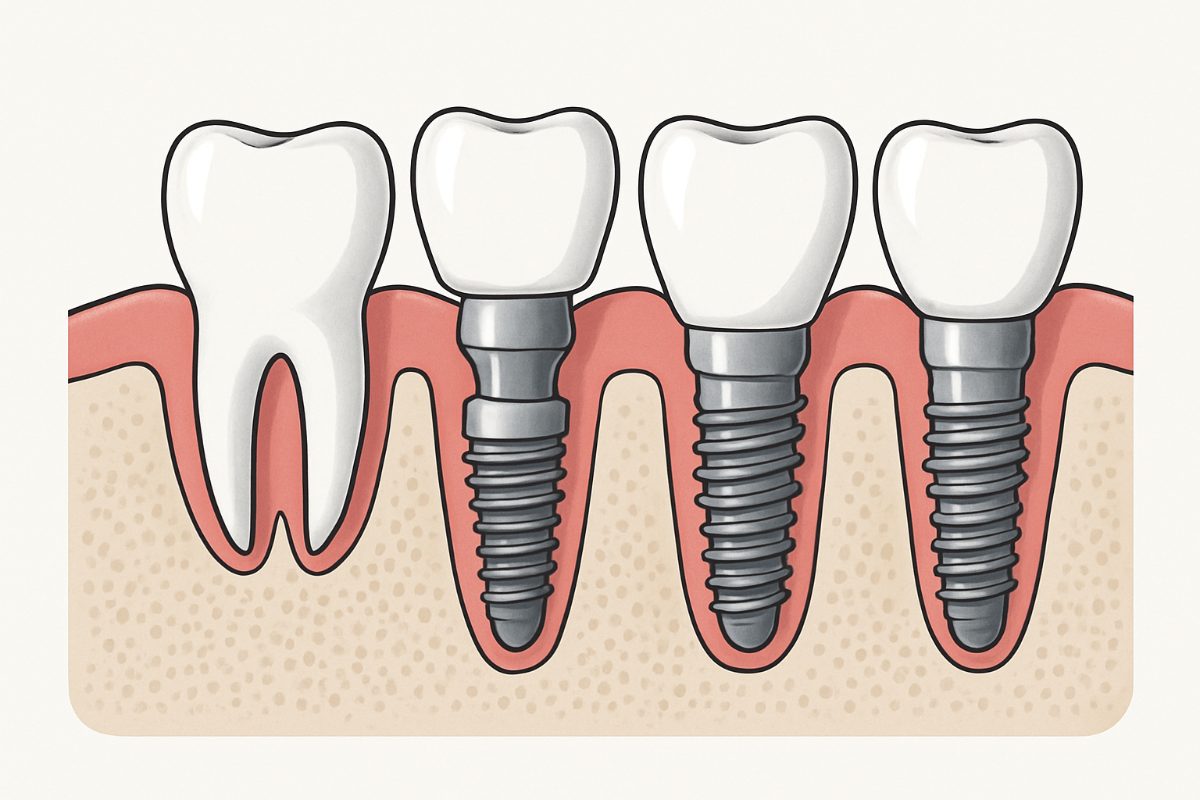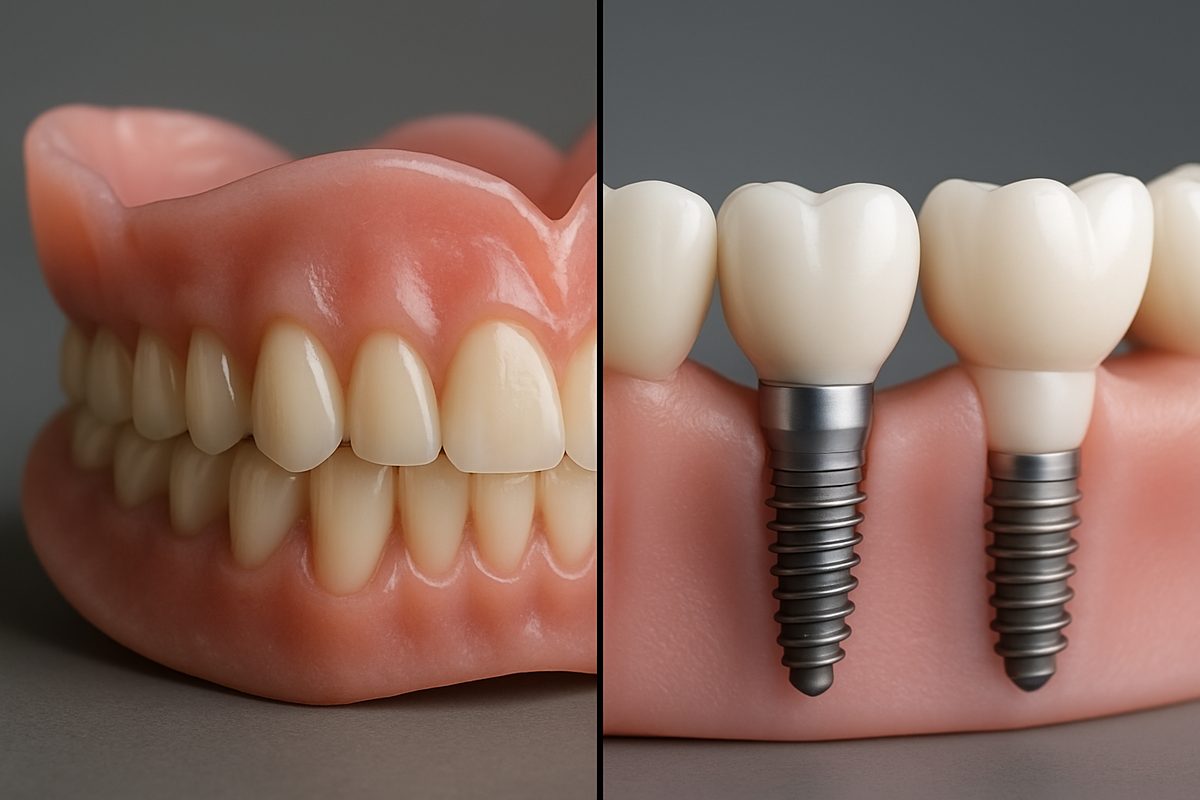Our Dental Blogs - Mesa, AZ
Tips, Facts, And The
Latest In Dentistry

Dentists Surgery For Dental Implants: What To Expect

This article explains what to expect from dentists surgery in Mesa, AZ for dental implants. You’ll learn how we plan cases, the technology used, what happens the day of surgery, recovery steps, risks, cost factors, and how a dedicated implant center improves results. Read on so you can ask the right questions and feel prepared.
Preparing for dentists surgery for dental implants
Initial consultation and diagnostics
Your first visit starts with an oral exam, medical history review, and a discussion of your goals. We talk about function, appearance, and what you hope to eat and do after treatment. Smile simulation like PreVu® shows a digital mock-up so you can see likely results and help set realistic expectations before any surgery.
3D imaging and digital planning
We use a BCT/CBCT scanner and intraoral digital scans to map your bone, nerves, and soft tissues. Digital implant planning software combines these scans to pick ideal implant positions and angles. This virtual plan is the roadmap for accurate, safer placement during dentists surgery Mesa, AZ.
Medical clearance and sedation choices
Before surgery we review medications and medical conditions and may request medical clearance from your physician if needed. Sedation options range from local anesthesia with nitrous oxide to oral or IV sedation for comfort. Your comfort plan is chosen based on health, anxiety level, and the scope of the procedure.
The day of the surgery: step-by-step
Arrival, final checks, and sedation
On surgery day you’ll check in, review the plan, and meet the team. Vital signs and a brief safety checklist are completed. If you chose sedation, it’s administered before the procedure so you are relaxed and comfortable.
Guided implant placement and in-house technology
Guided-surgery workflows use the preplanned digital guide that fits over your teeth or gums to direct drill position and depth. With an in-house lab, CAD/CAM systems, and an Einstein 3D printer, the team can produce surgical guides, models, and provisional teeth quickly and accurately. This tight control improves precision during dentists surgery and reduces surprises.
Immediate teeth vs staged approach
When implants have excellent initial stability, immediate provisional teeth can be attached the same day. If stability, bone quality, or other factors aren’t ideal, a staged approach lets the implant heal before the final restoration. Your surgeon will recommend the safest option for long-term success.
Recovery: what to expect in the first days and weeks
Pain control and normal symptoms
Mild to moderate soreness and swelling are normal for a few days. Ice, rest, and prescribed or over-the-counter pain meds usually manage symptoms. Call the office if you have heavy bleeding, fever, severe pain not helped by medication, or signs of infection.
Oral hygiene, diet, and activity limits
Keep the area clean with gentle rinsing and careful brushing near the implants. Stick to soft foods for several days and avoid chewing directly on new implant sites until cleared. Avoid heavy lifting or strenuous exercise for the first week to reduce swelling and bleeding risk.
Follow-up schedule and when final restorations are placed
Typical follow-ups occur within a week, then periodically during the healing phase. Healing can take a few months for full integration. Digital workflows and in-house fabrication often speed delivery of final prosthetics once healing is confirmed, shortening the overall timeline.
Risks and how modern workflows reduce them
Common complications and warning signs
Possible issues include infection, temporary nerve sensitivity, and failure of the implant to integrate. Report persistent numbness, increasing pain, pus, or loose parts right away. Early detection and care reduce long-term problems.
How technology and experience lower risk
CBCT planning, guided surgical guides, and experienced clinicians reduce the chance of nerve injury and poor placement. An in-house lab and digital control let the team check fit and function early, lowering the risk of prosthetic problems after dentists surgery in Mesa, AZ.
Cost, timeline, and factors that change your plan
What affects price and length of treatment
Costs and time depend on the number of implants, need for bone grafting or extractions, whether you get immediate teeth, and the complexity of the final prosthesis. Medical issues, smoking, and bone quality also alter the plan.
How in-house labs and integrated digital workflows can save time and money
When more steps happen on-site—digital planning, guide fabrication, and milling or 3D printing—cases move faster and often at lower cost because the team controls timing and quality. Fewer lab shipments mean fewer delays and adjustments.
About the provider and the implant center (brief)
Credentials and patient-centered approach
Dr. Alyssa Mencini, DMD, trained at Midwestern University and has completed hundreds of full-mouth implant and denture cases each year. She serves as Director of Doctor Training at an implant center and focuses on evidence-based, patient-centered care at Restore Denture and Implant Center.
Key technologies that support safe outcomes
- BCT/CBCT scanner for 3D imaging
- In-house denture and implant lab with CAD/CAM
- Einstein 3D printer for guides and prototypes
- Smile simulation (PreVu®)
- Guided-surgery workflows and sedation options
Next steps: questions to ask and how to schedule
Bring these quick questions to your consult to get clear answers and feel confident:
- How many full-arch implant cases have you completed?
- What imaging and guided-surgery technology do you use?
- What sedation options are available and recommended for me?
- What is the expected timeline from surgery to final teeth?
- How much will my treatment cost and what affects the price?
- Do you offer any warranty or follow-up care for implants?
To learn more or schedule a consultation for dentists surgery in Mesa, AZ, contact Restore Denture and Implant Center. A short visit will let you see the technology, review options, and get a personalized plan for safe, predictable implant care.

![{"error":"[GoogleGenerativeAI Error]: Error fetching from https://generativelanguage.googleapis.com/v1beta/models/gemini-2.0-flash:generateContent: [429 Too Many Requests] Resource exhausted. Please try again later. Please refer to https://cloud.google.com/vertex-ai/generative-ai/docs/error-code-429 for more details."}](https://cms.restorephoenix.com/wp-content/uploads/2026/02/featured-image-a521432a.jpg)


